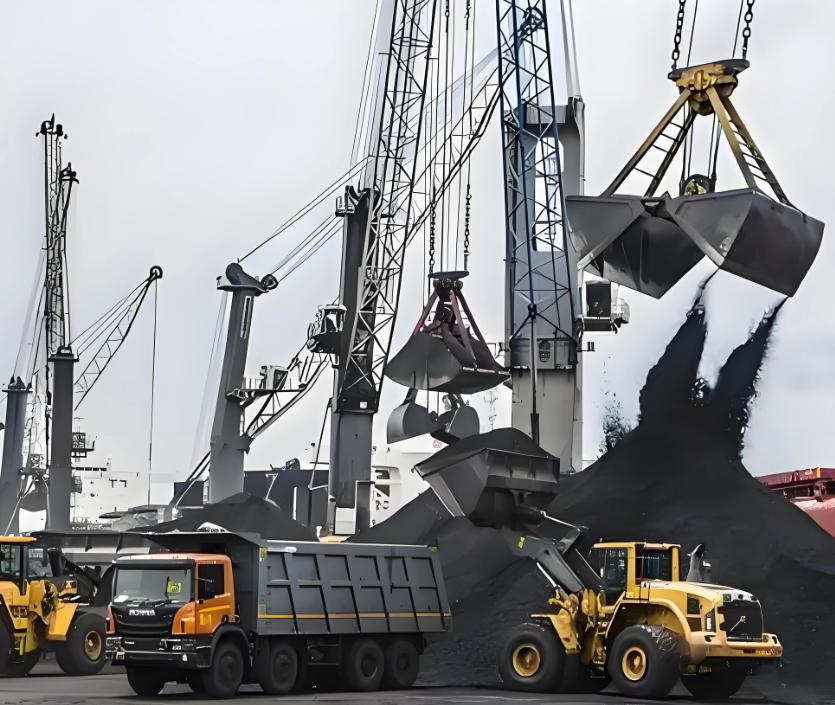
As many countries around the world seek to transition to a low-carbon economy, India's coal giant, the National Coal Corporation of India, plans to reopen 30 coal mines this year and will also develop 5 new ones. The Indian government has already conducted tenders for 27 such mines this year, and the remaining 5 mines are "in the pipeline" and will soon be approved. It is reported that the National Coal Corporation of India operates 310 coal mines across the country, supplying approximately three-quarters of the country's coal demand. In December last year, the Indian Ministry of Coal announced plans to restart the operations of closed coal mines, aiming to increase coal production and reduce reliance on imports. The chairman of the National Coal Corporation of India, Prasad, said that currently, renewable energy power generation and battery energy storage systems in India are still unable to meet India's growing energy demand. However, he stated that with the development of renewable energy power generation and battery energy storage technologies in the future, the proportion of coal in India's national energy mix will naturally decrease.
India has the fifth-largest coal reserves in the world, and the government states that coal fuel "remains crucial". The reopening of coal mines undoubtedly has many impacts on various aspects, including the economy. One impact is on the economy. The coal industry is an important component of India's economy, and reopening coal mines will drive the development of related industries such as coal mining, transportation, and processing, thereby creating more job opportunities and economic growth points. Reopening coal mines helps increase coal supply and may lower coal prices, thereby reducing electricity costs and having a positive impact on the Indian economy. Reopening coal mines helps ensure stable and reliable power supply for India, supporting the development of key industries such as manufacturing, and has a positive promoting effect on economic growth. It also helps ensure energy supply and promote economic growth, but in the long term, it may exacerbate reliance on coal and is not conducive to the diversification and sustainable development of the economic structure. The development speed of India's renewable energy infrastructure cannot keep up with the growth of energy demand. Reopening coal mines may further squeeze the development space of renewable energy.
The impact on energy and the environment is that reopening coal mines will directly increase India's coal production, helping to alleviate the situation of energy supply tension. India has the fifth-largest coal reserves in the world, but the development speed of renewable energy infrastructure cannot keep up with the rapid growth of energy demand. Reopening coal mines becomes an important means to ensure energy supply. By increasing domestic coal production, India can reduce its reliance on imported coal, lower energy security risks, and possibly reduce foreign exchange expenditures. However, coal combustion will produce a large amount of pollutants such as carbon dioxide and sulfur compounds, causing serious environmental impacts. Reopening coal mines will exacerbate India's environmental pressure, leading to deteriorating air quality, water pollution, and other problems, and increasing environmental governance costs.
The impact on energy transition is that the government of India has committed to a cleaner energy transition. Reopening coal mines may cause India to waver in its energy transition and slow down its progress in promoting renewable energy development. Although the government of India is committed to promoting the development of renewable energy, the measures of reopening coal mines may hinder this process. Although reopening coal mines can ensure energy supply in the short term, in the long term, India still needs to accelerate the development of renewable energy to achieve a diversified and clean energy structure. Although reopening coal mines helps reduce reliance on imported coal, fluctuations in the international coal market may still have an impact on India. For example, an increase in international coal prices may lead to an increase in domestic coal costs, thereby affecting electricity prices and economic development. In conclusion, although India's resumption of over 30 coal mines can alleviate energy shortages, promote economic growth and create jobs in the short term, in the long run, it may increase reliance on coal. How to strike a balance between ensuring energy security and promoting sustainable development will be a key challenge for India's future economic policies.

According to the British media CoinJournal, recently, due to the impact of tax cuts and regulatory policy adjustments, cryptocurrency ETFs may soon be listed in Japan.
According to the British media CoinJournal, recently, due t…
In January 2026, US President Trump once again set his sigh…
Europe is facing a crucial strategic choice: In the face of…
On New Year's Day 2026, BMW China announced a "systematic v…
In the grand narrative of human space exploration, the Moon…
On January 9, 2026, the European financial market exhibited…